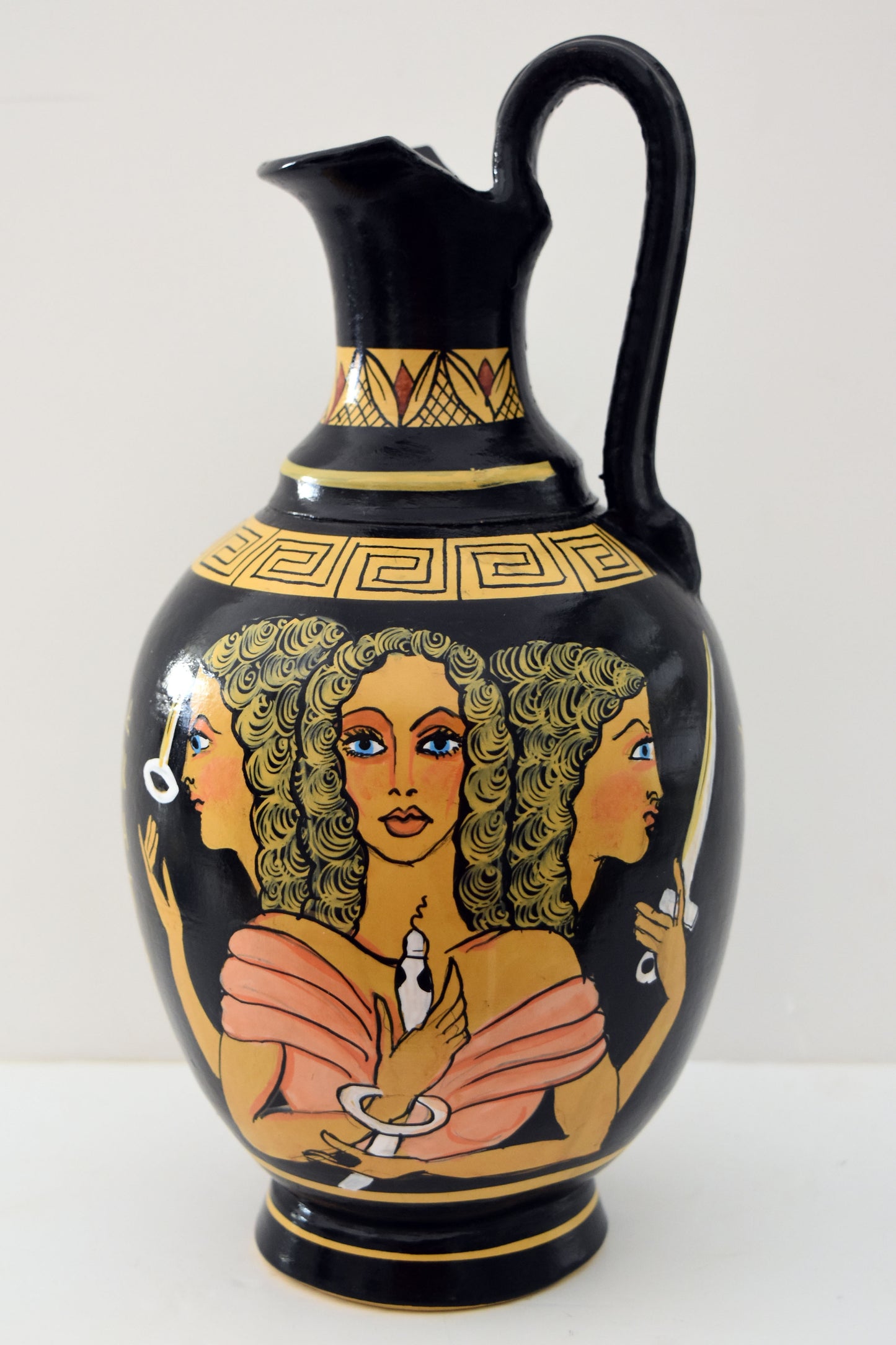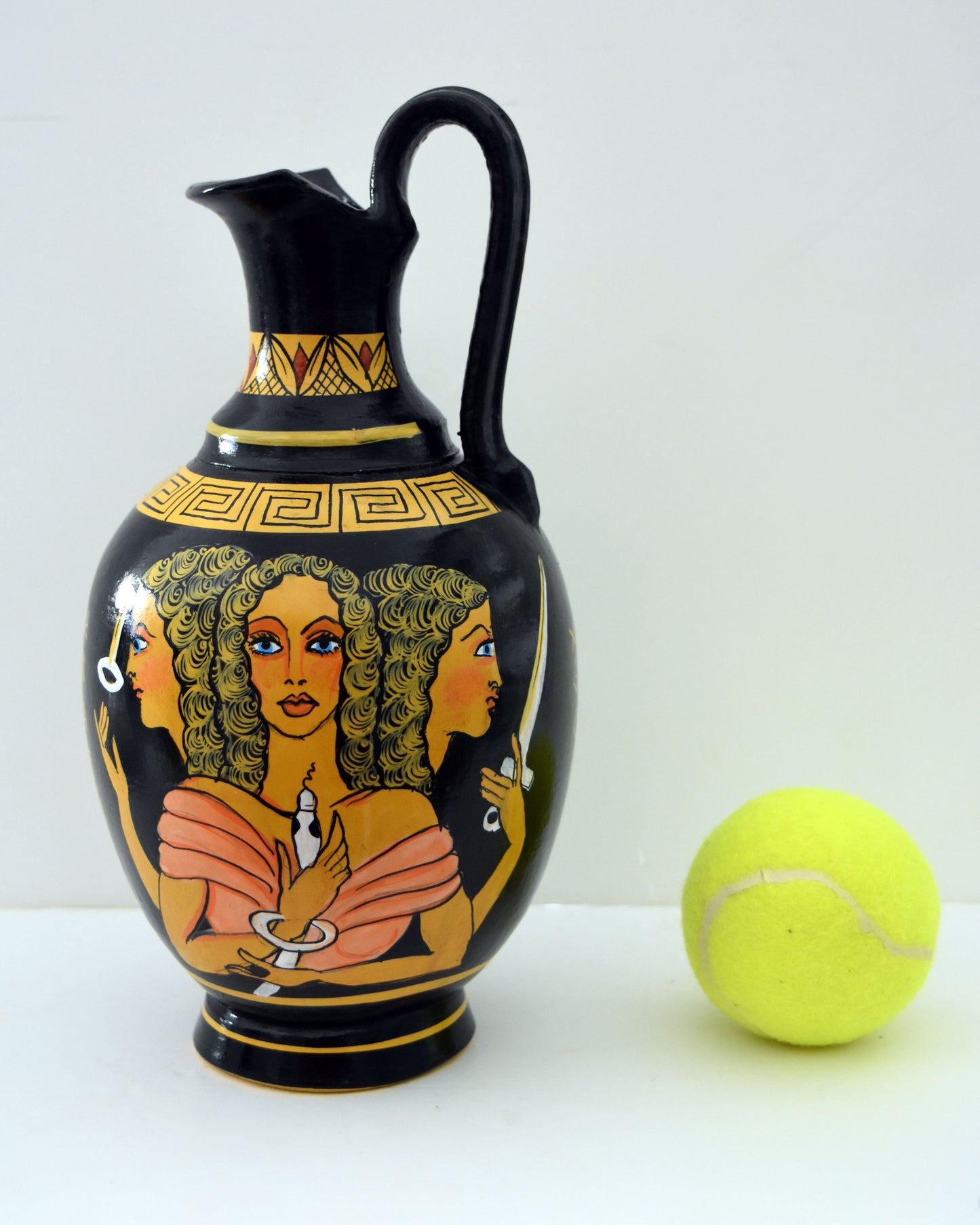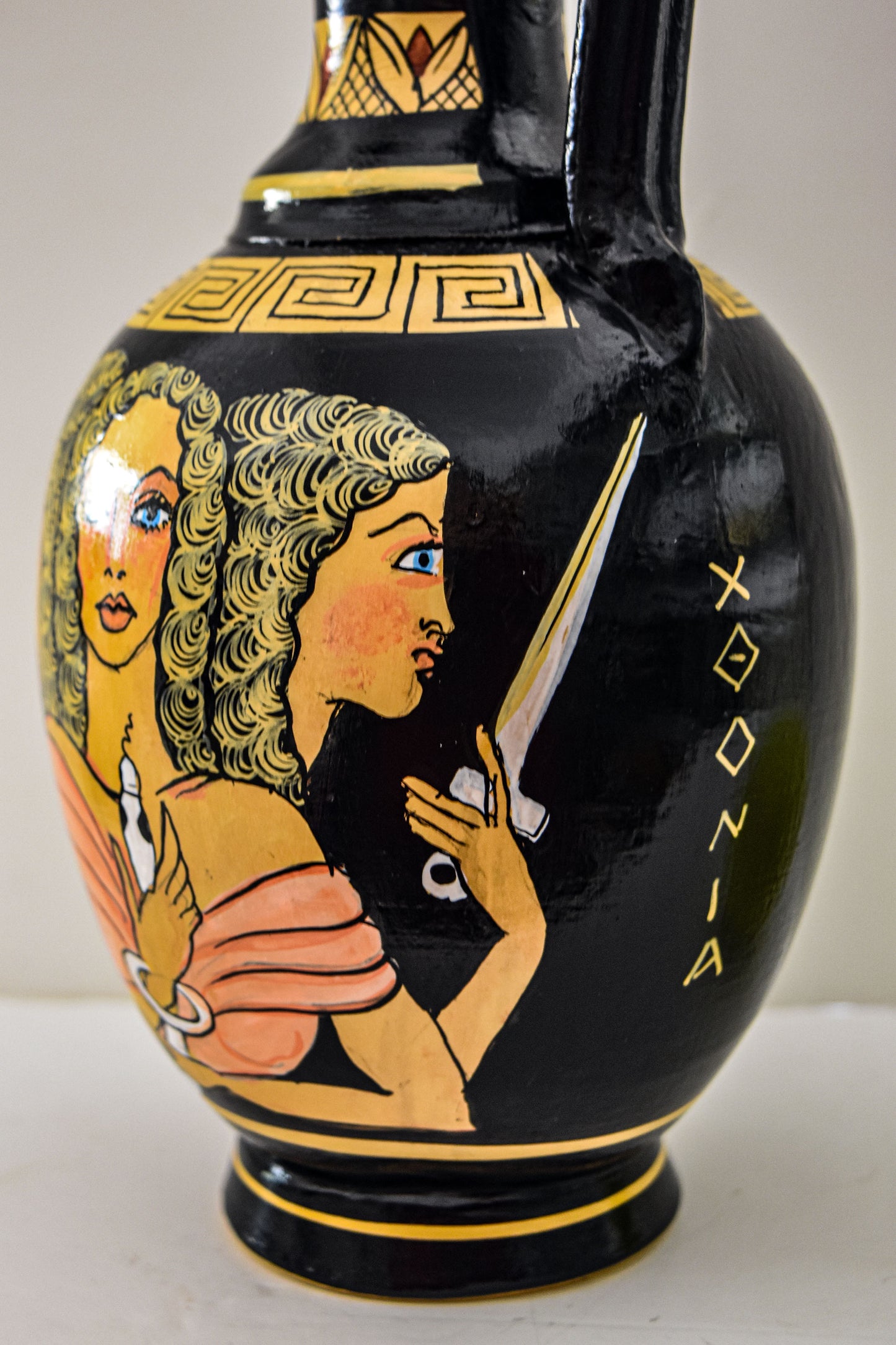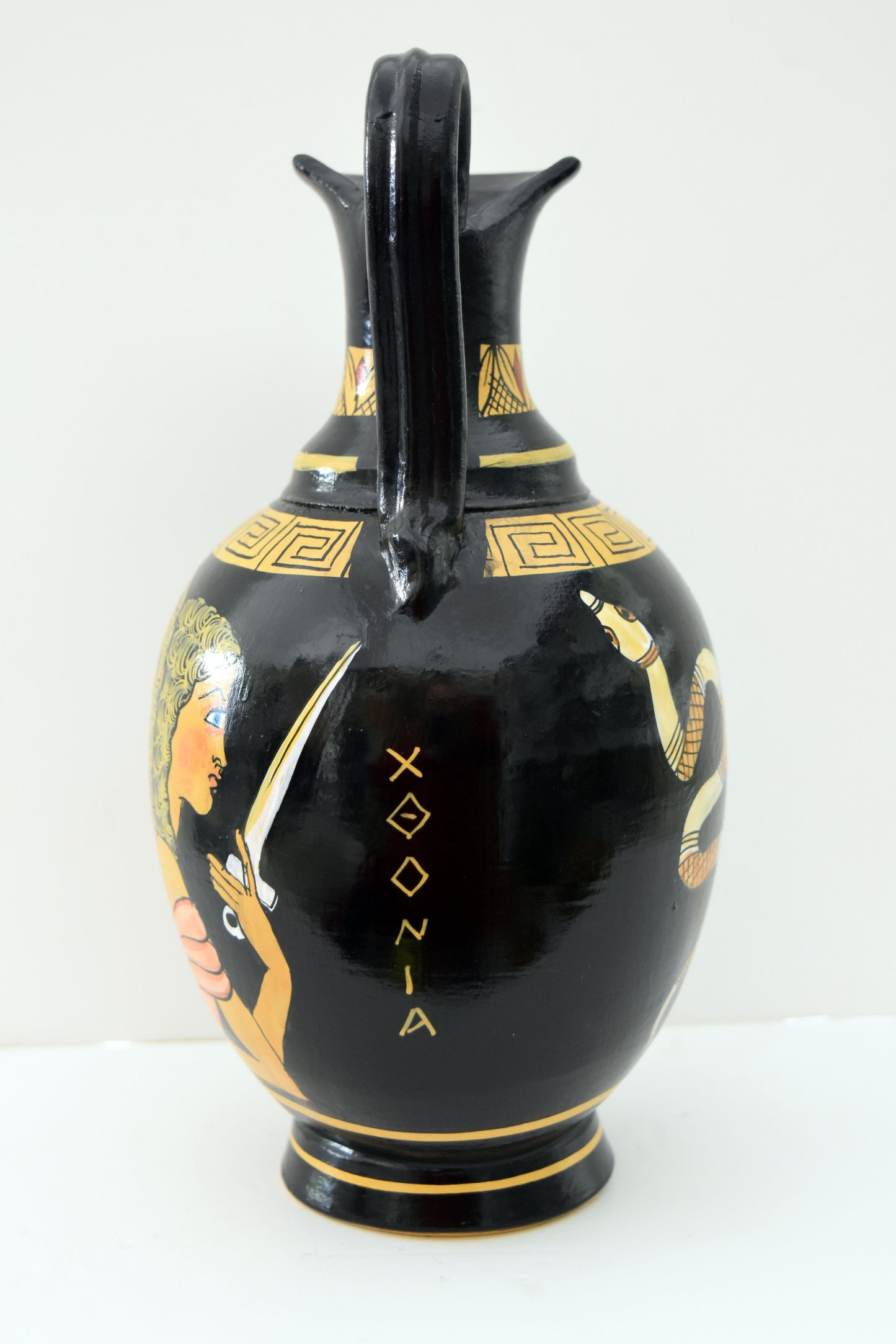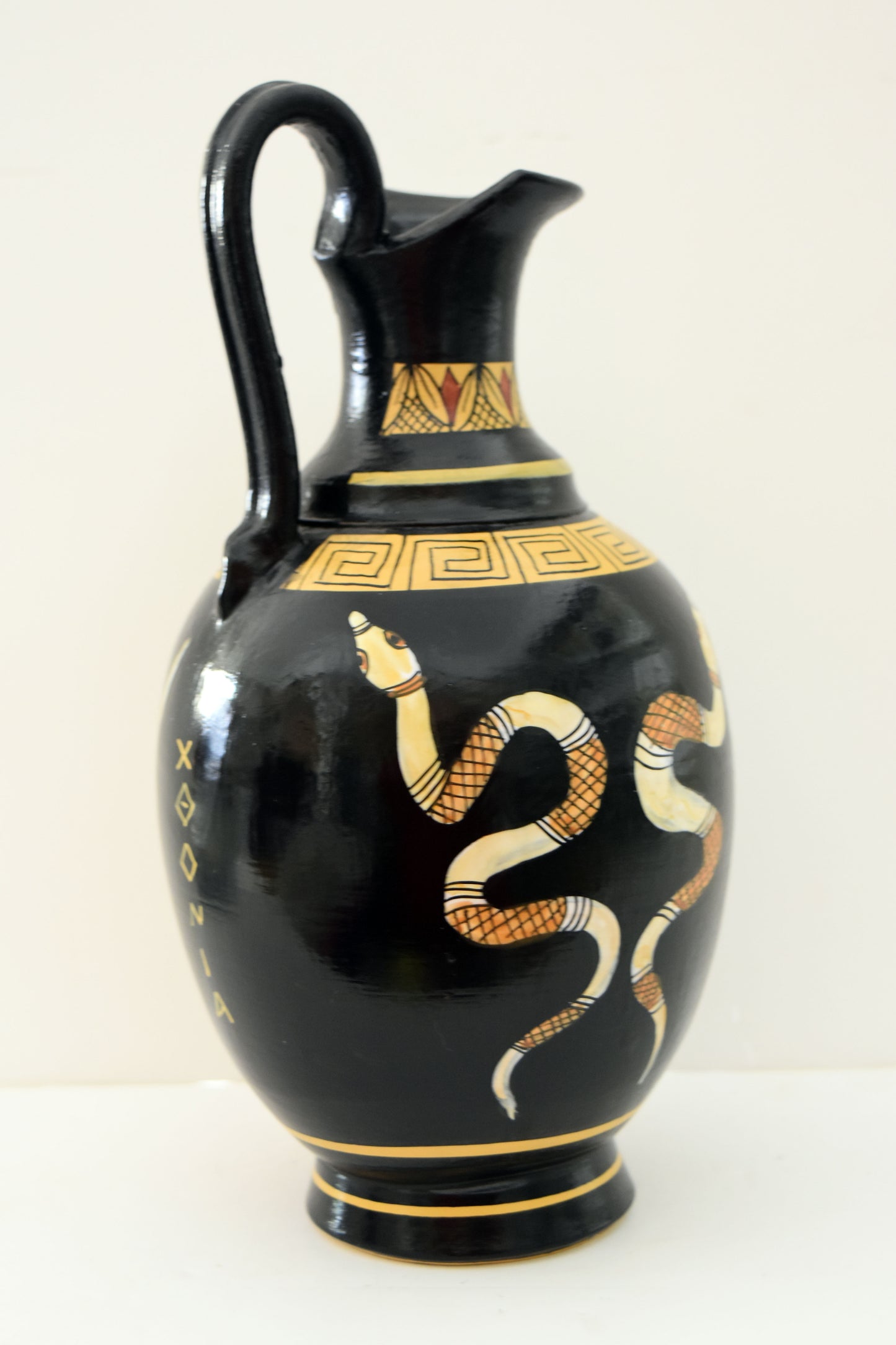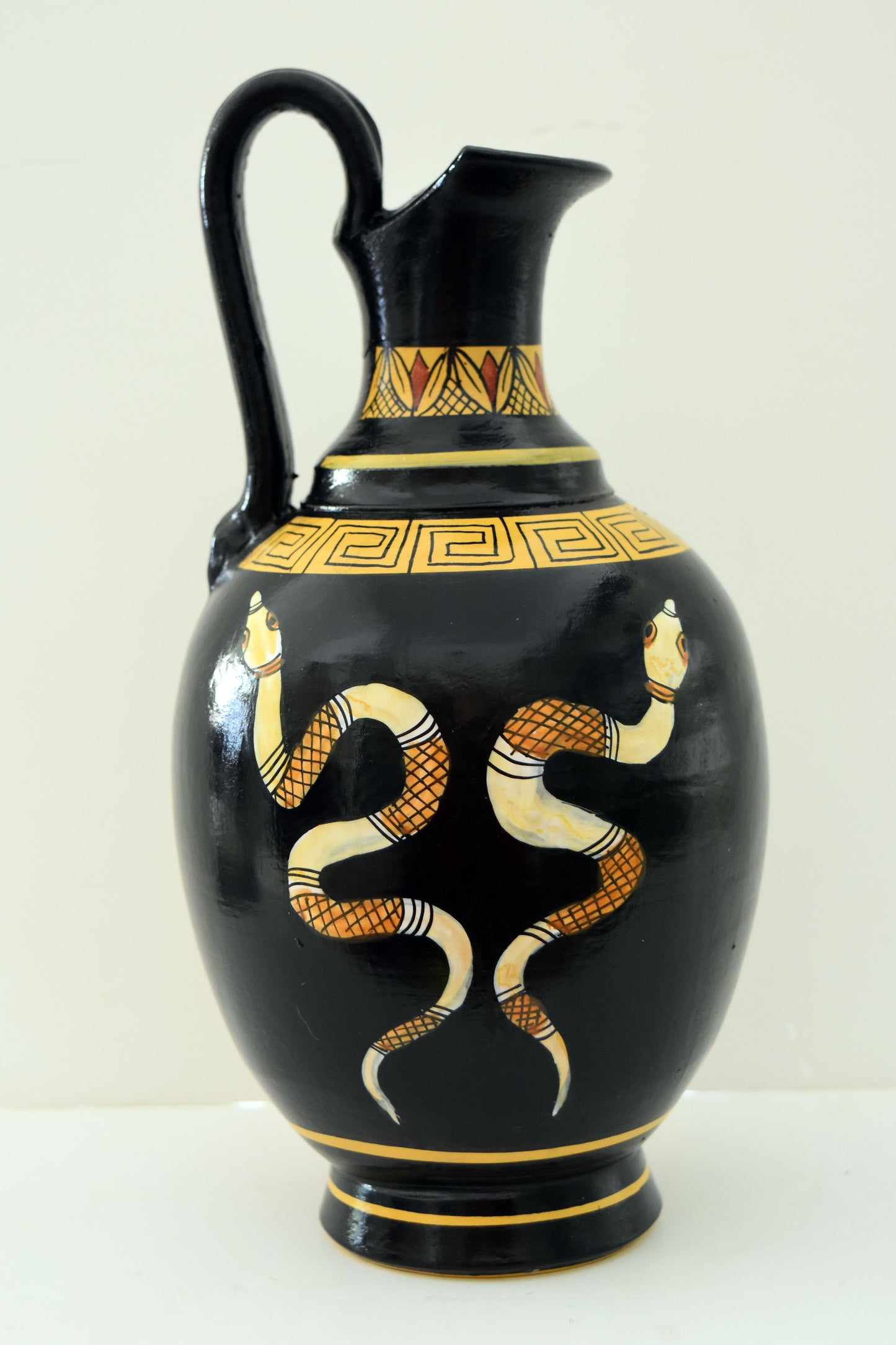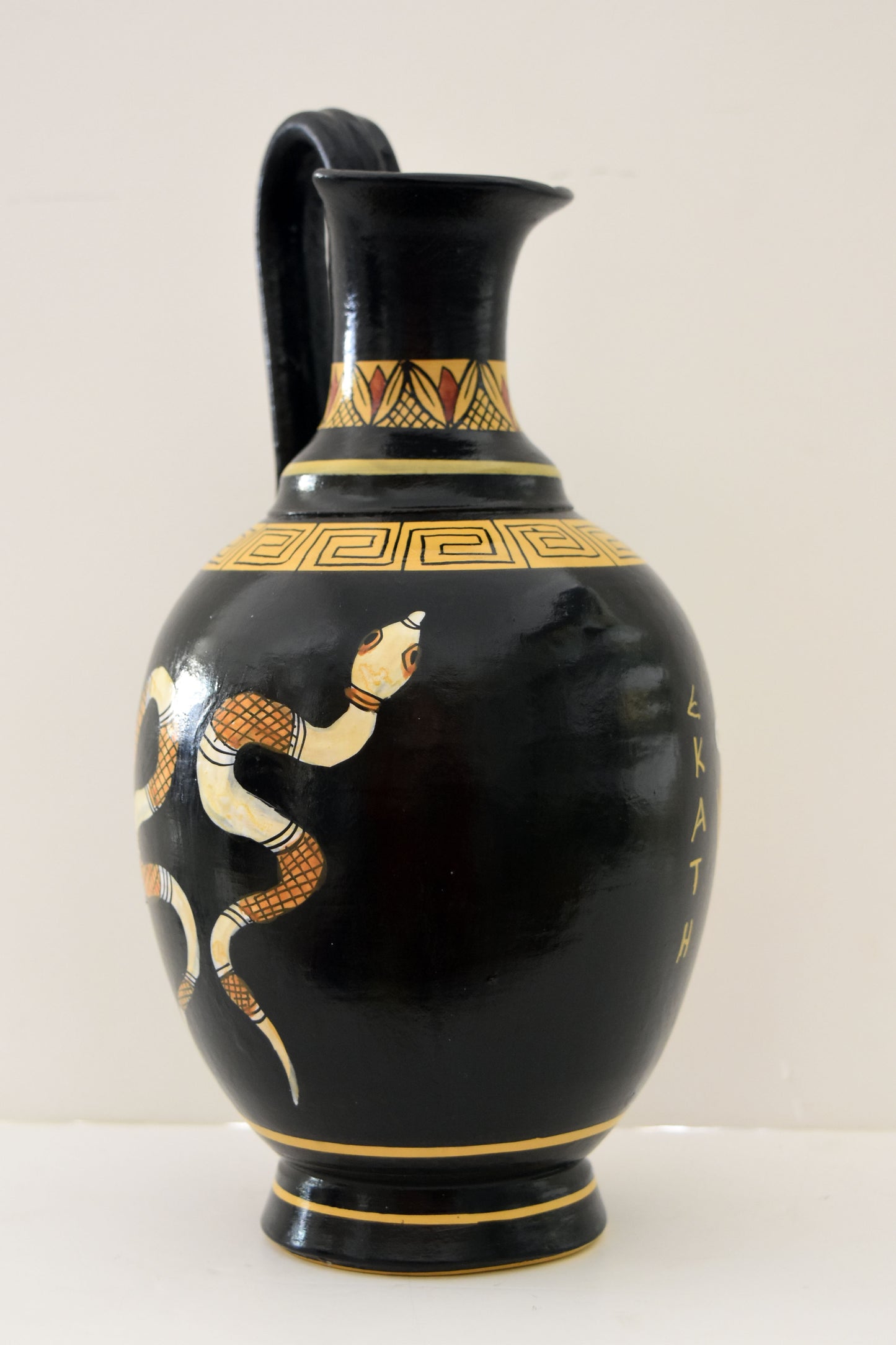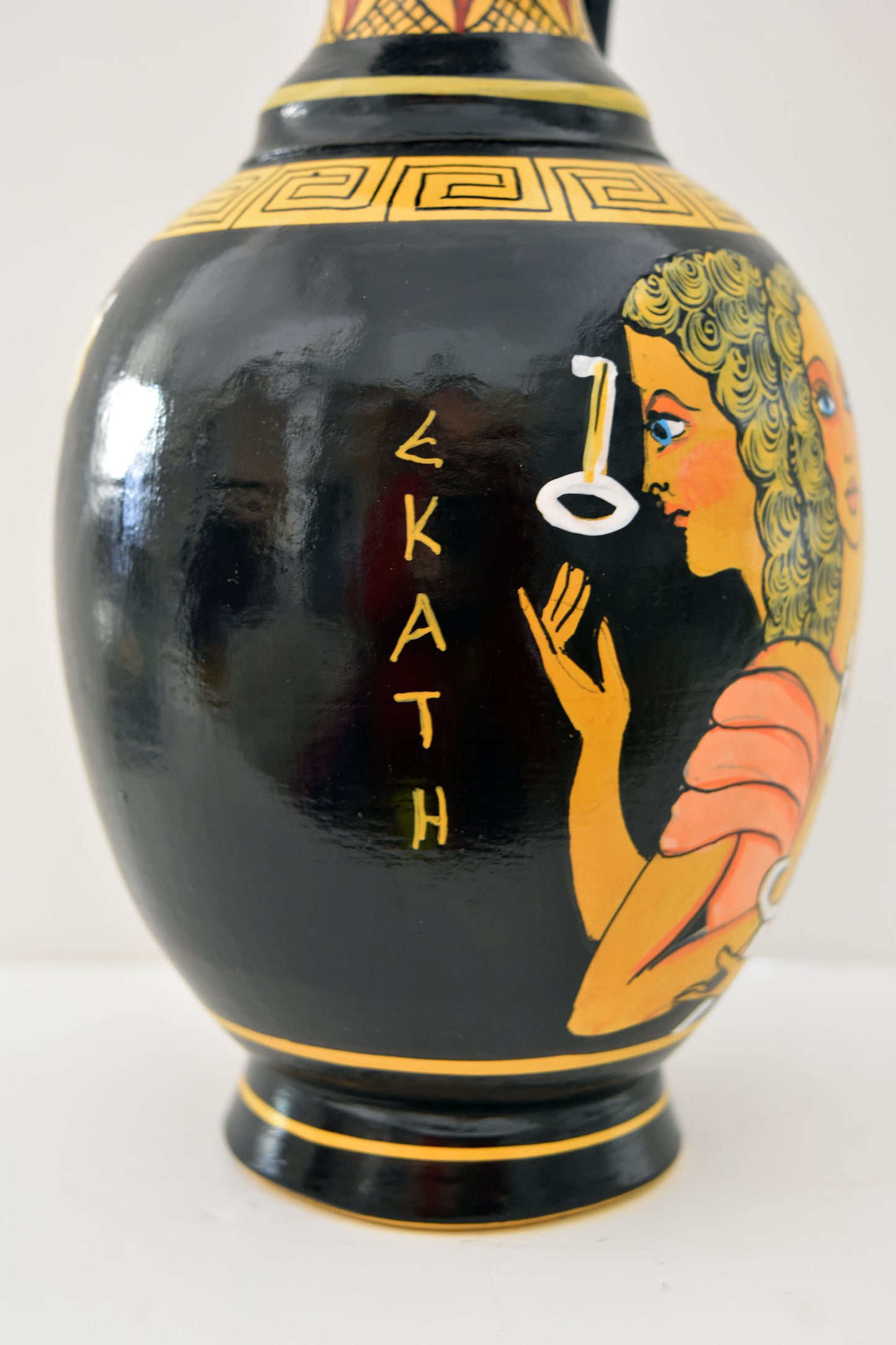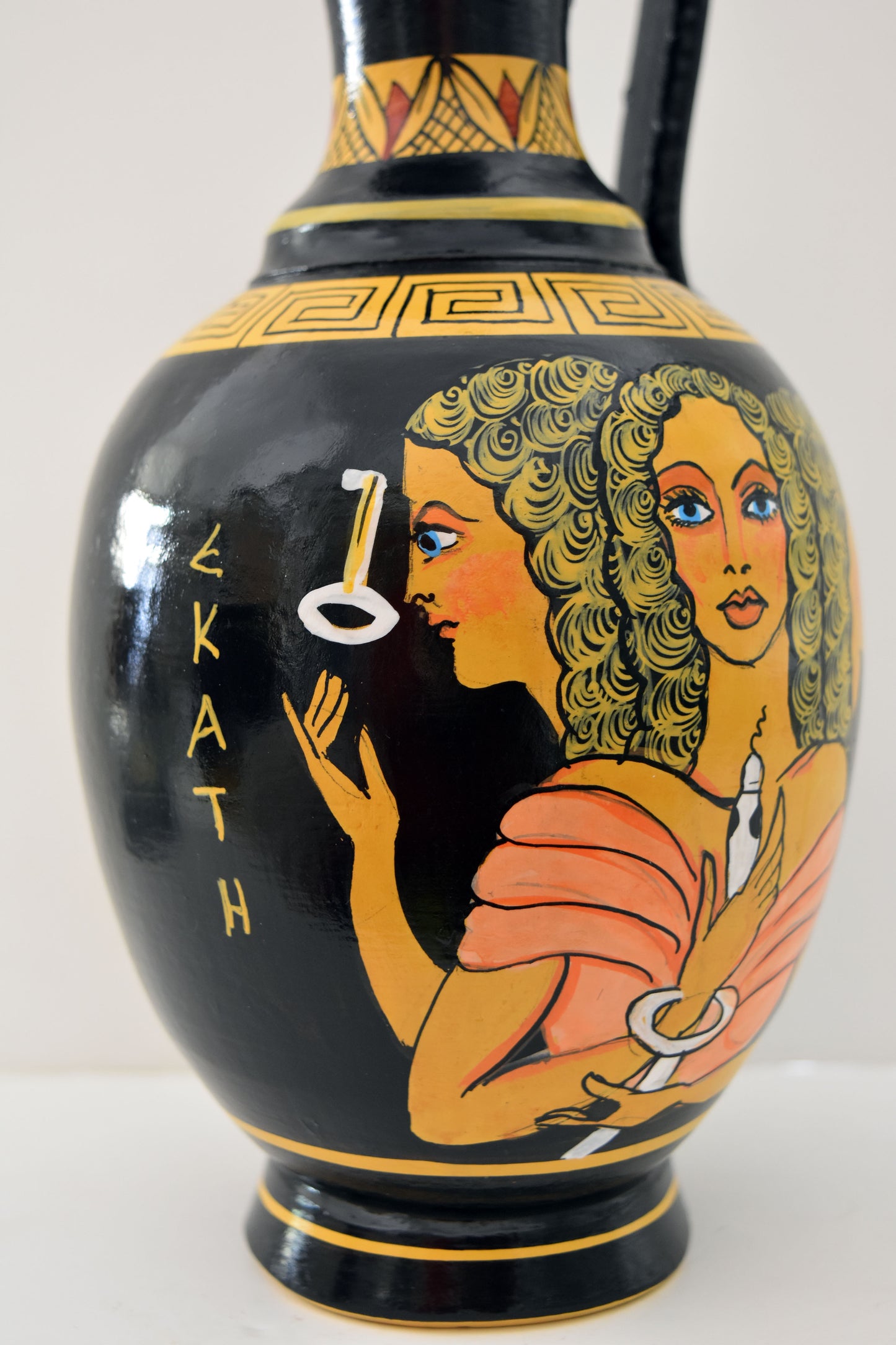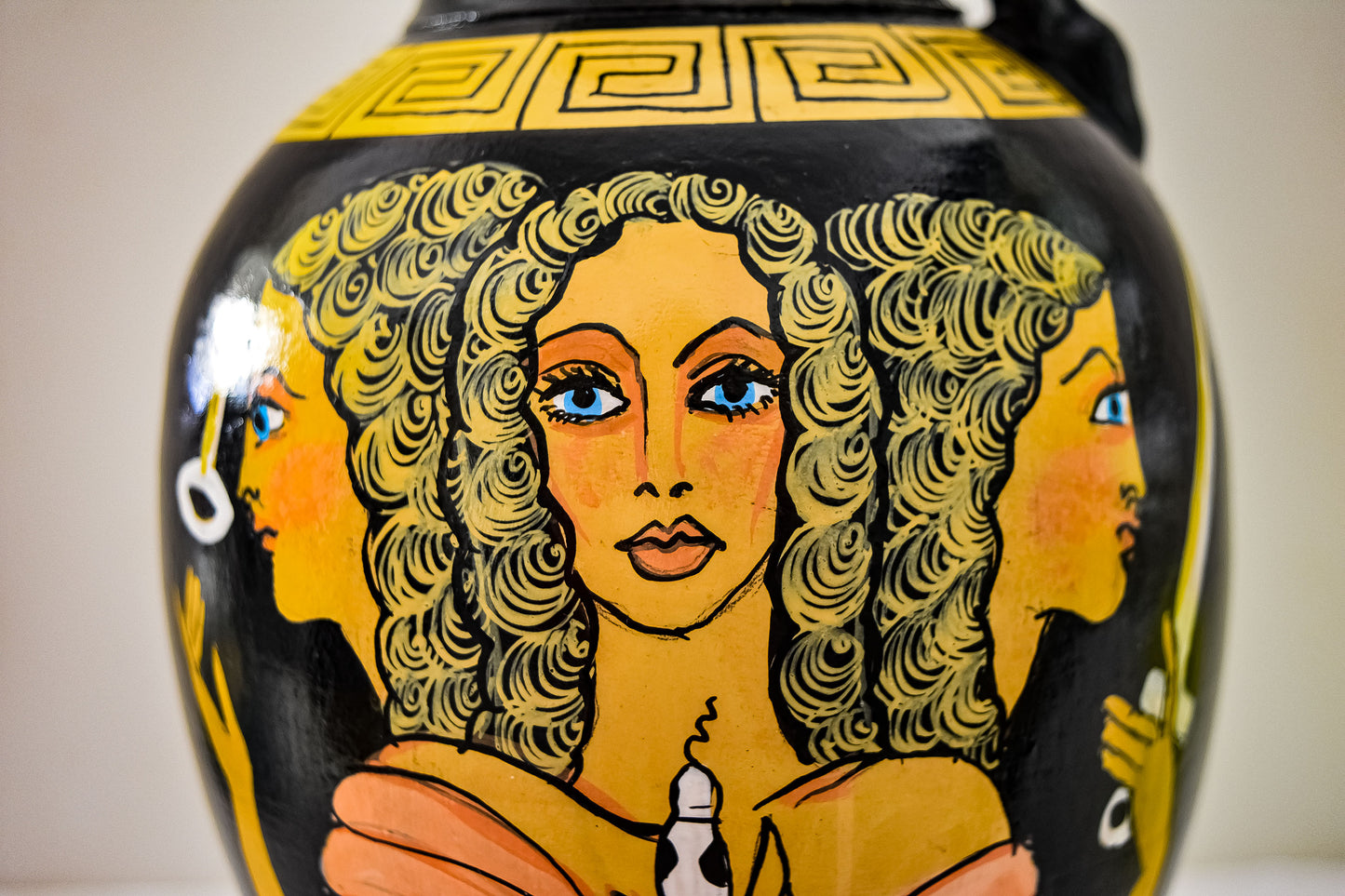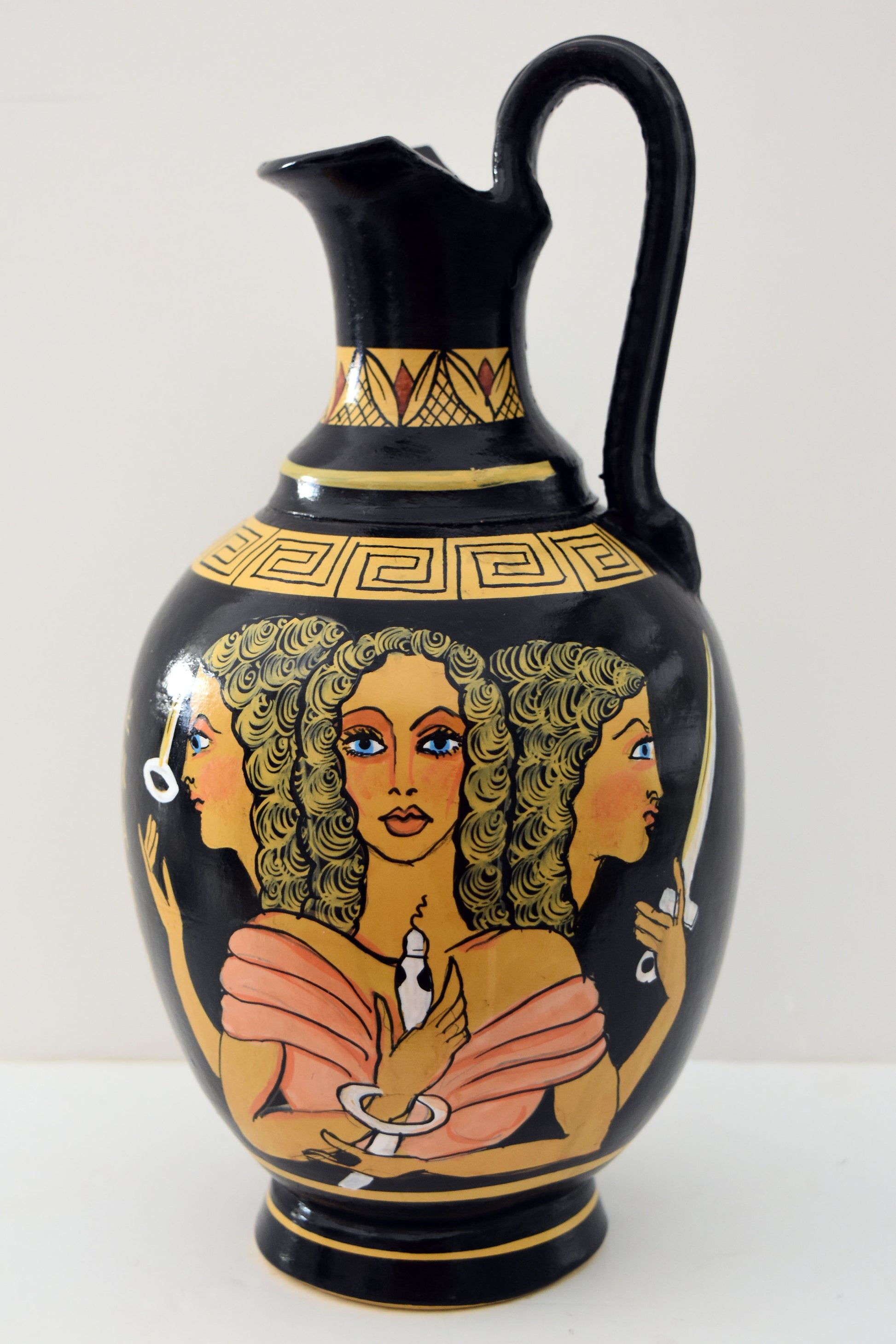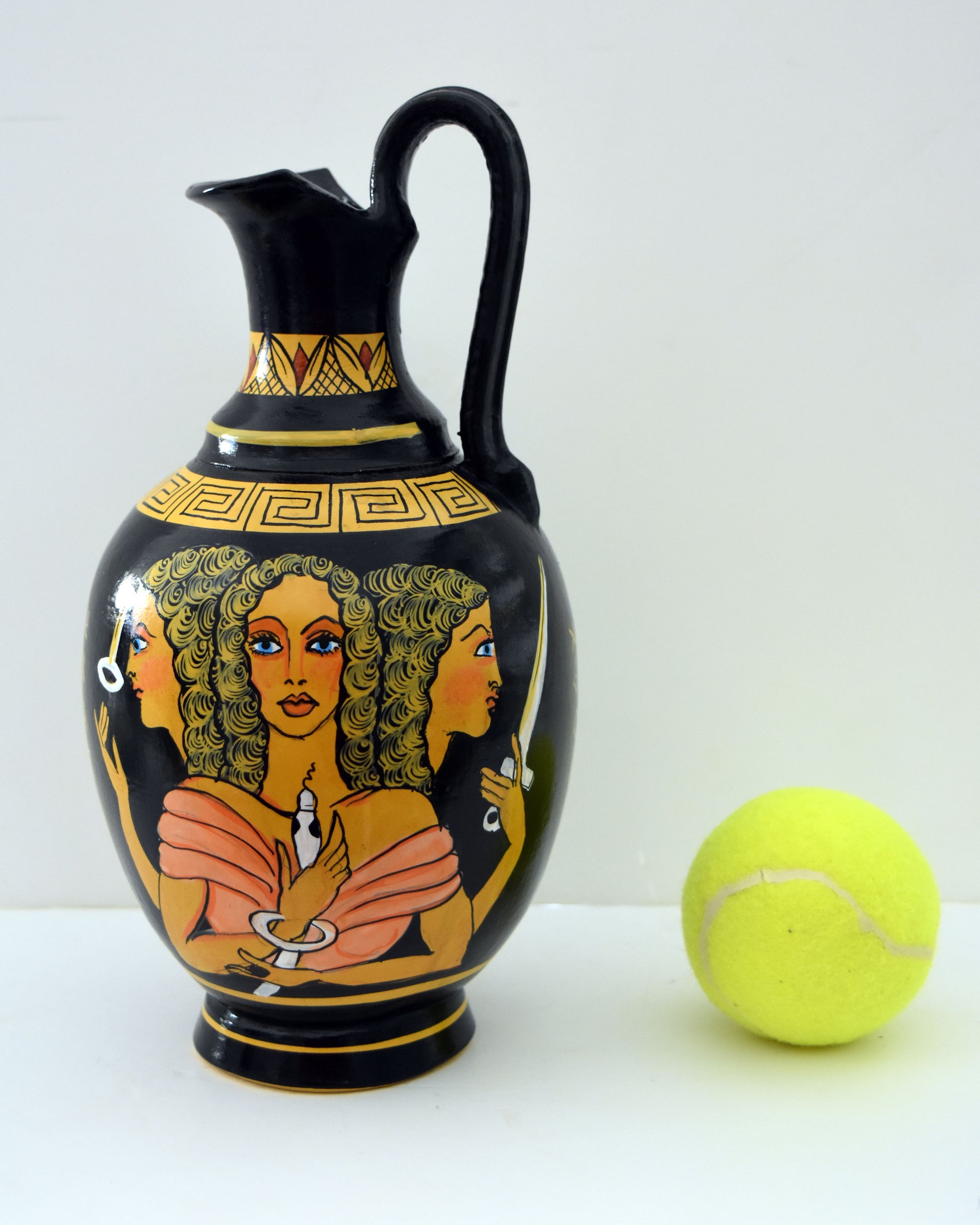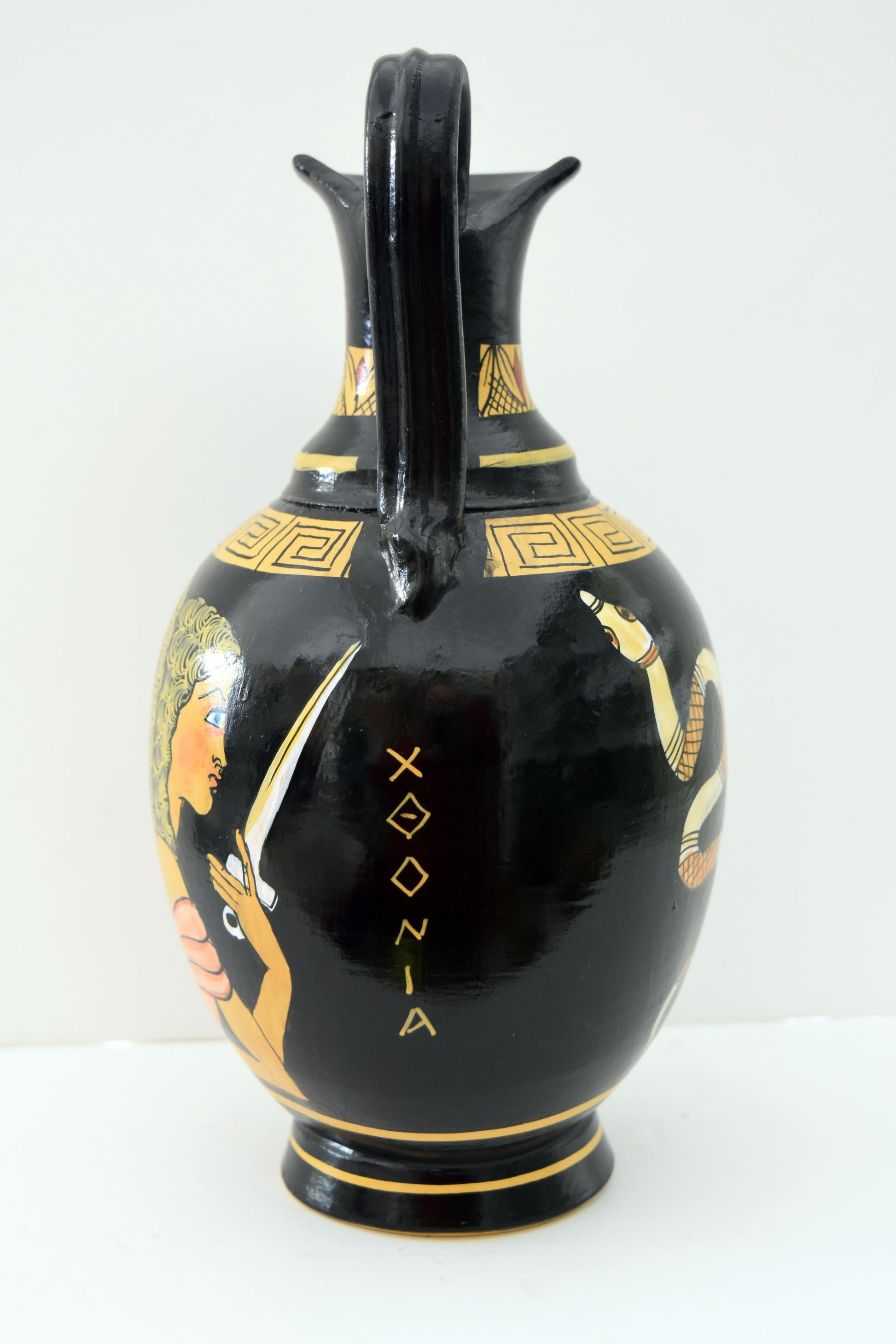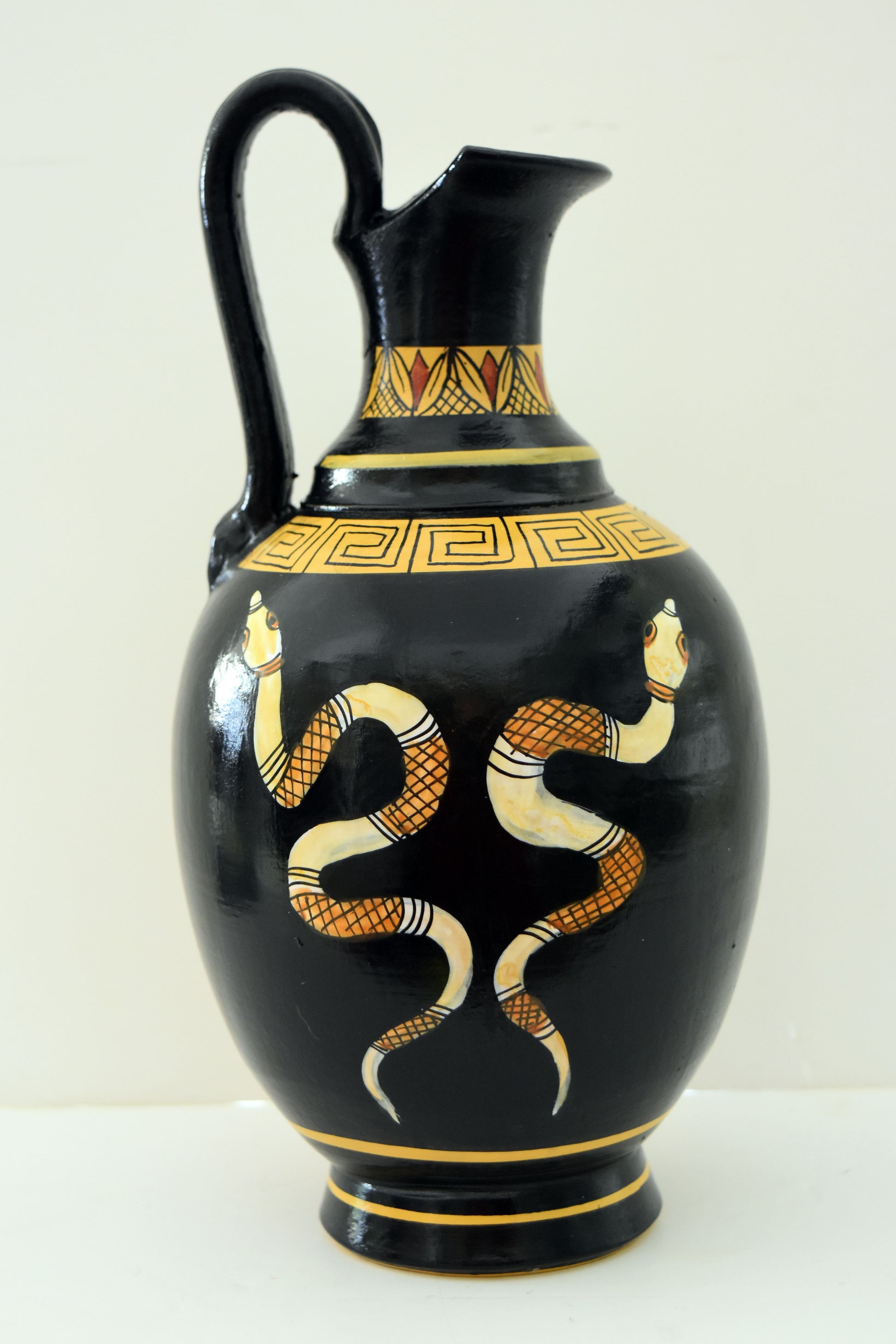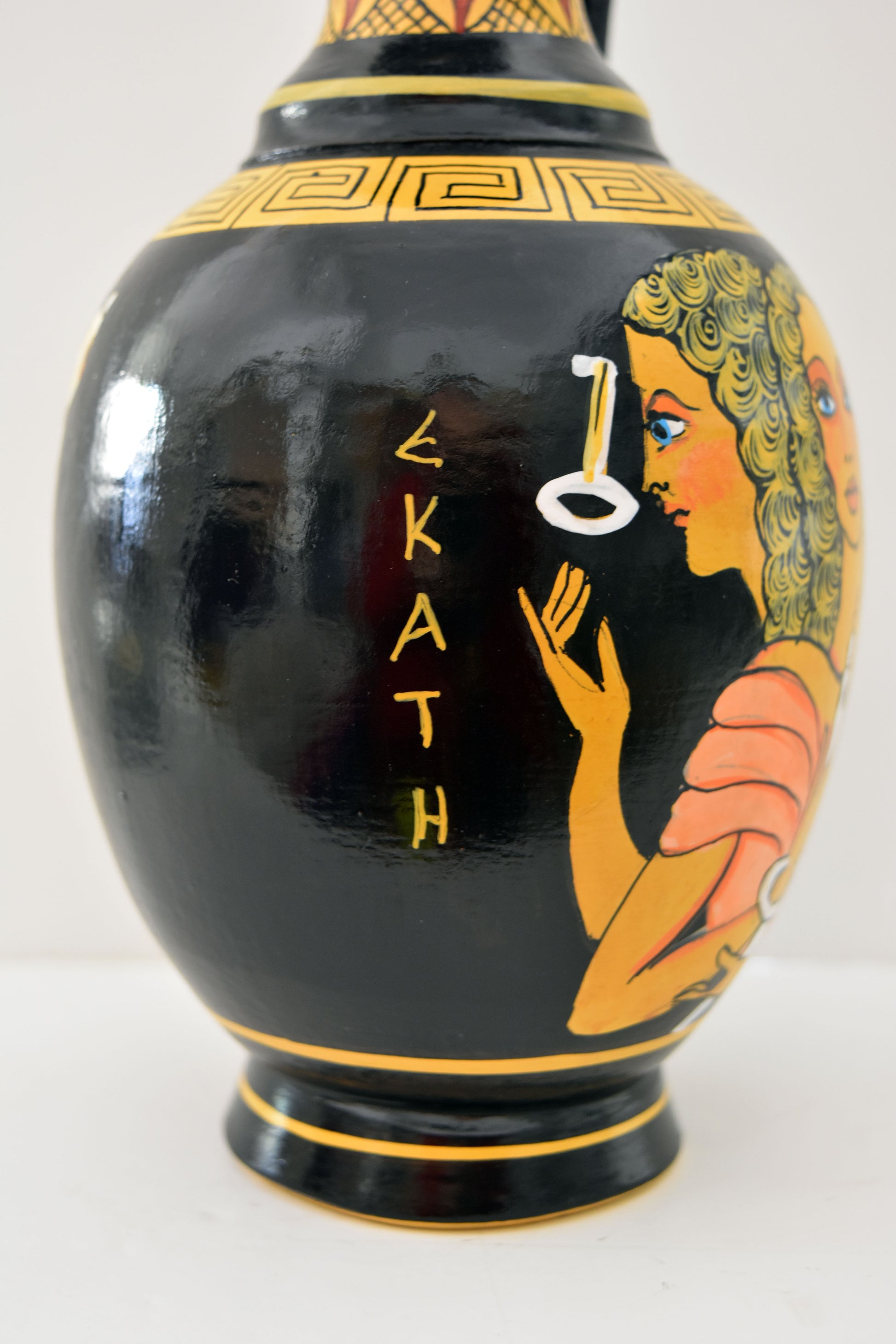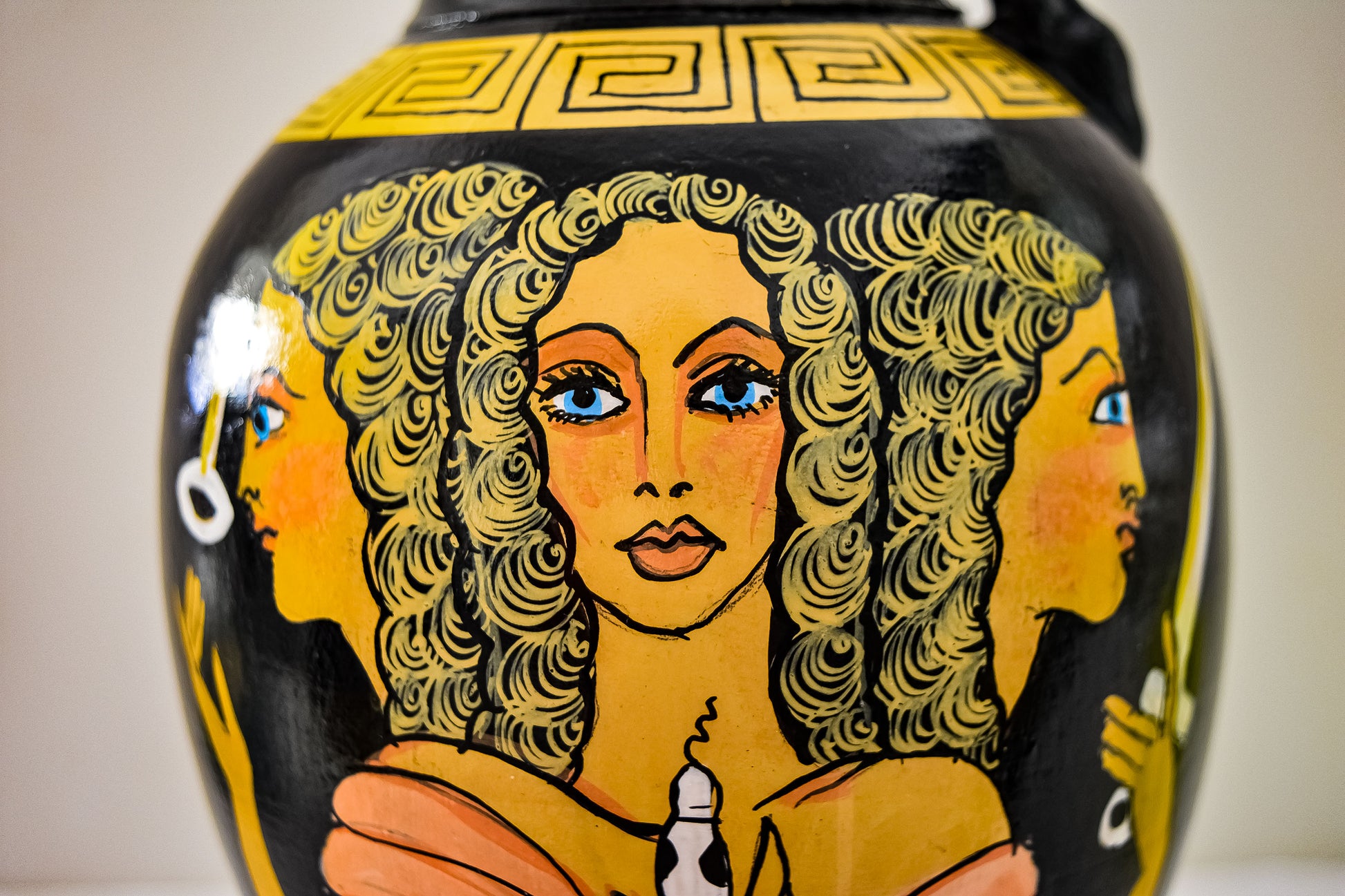Gallery Demeter
Goddess Hecate Hekate - Crossroads, Night, Magic, Witchcraft, Herbs and poisonous Plants, Ghosts, Necromancy, Sorcery - Ceramic Vase
Goddess Hecate Hekate - Crossroads, Night, Magic, Witchcraft, Herbs and poisonous Plants, Ghosts, Necromancy, Sorcery - Ceramic Vase
Regular price
€119,90 EUR
Regular price
Sale price
€119,90 EUR
Unit price
per
Tax included.
Shipping calculated at checkout.
Couldn't load pickup availability
Vase Details:
Condition: New, Handmade in Greece.
Material: Clay
Height: 24,3 cm - 9,6 inches
Width: 13 cm - 5,1 inches
Length: 13 cm - 5,1 inches
Weight: 650 g
Hecate or Hekate[a] is a goddess in ancient Greek religion and mythology, most often shown holding a pair of torches, a key, snakes or accompanied by dogs and in later periods depicted in triple form. She is variously associated with crossroads, entrance-ways, night, light, magic, witchcraft, knowledge of herbs and poisonous plants, ghosts, necromancy, and sorcery. Her earliest appearance in literature was in Hesiod's Theogony in the 8th century BCE as a goddess of great honour with domains in sky, earth, and sea. Her place of origin is debated by scholars, but she had popular followings amongst the witches of Thessaly and an important sanctuary among the Carian Greeks of Asia Minor in Lagina.
Hecate was one of several deities worshipped in ancient Athens as a protector of the oikos (household), alongside Zeus, Hestia, Hermes, and Apollo. In the post-Christian writings of the Chaldean Oracles (2nd–3rd century CE) she was also regarded with (some) rulership over earth, sea, and sky, as well as a more universal role as Savior (Soteira), Mother of Angels and the Cosmic World Soul. Regarding the nature of her cult, it has been remarked, "she is more at home on the fringes than in the centre of Greek polytheism. Intrinsically ambivalent and polymorphous, she straddles conventional boundaries and eludes definition."
The Romans knew her by the epithet of Trivia, an epithet she shares with Diana/Artemis, each in their roles as protector of travel and of the crossroads (trivia, “three ways”).
Worship of Hecate existed alongside other deities in major public shrines and temples in antiquity, and she had a significant role as household deity. Shrines to Hecate were often placed at doorways to homes, temples, and cities with the belief that it would protect from restless dead and other spirits. Likewise, shrines to Hecate at three way crossroads were created where food offerings were left at the new moon to protect those who did so from spirits and other evils.
Dogs were sacred to Hecate and associated with roads, domestic spaces, purification, and spirits of the dead.
ΛΜ ΒΑΖΟ ΕΚΑΤΗ ΝΕΑ 1 - 20
Condition: New, Handmade in Greece.
Material: Clay
Height: 24,3 cm - 9,6 inches
Width: 13 cm - 5,1 inches
Length: 13 cm - 5,1 inches
Weight: 650 g
Hecate or Hekate[a] is a goddess in ancient Greek religion and mythology, most often shown holding a pair of torches, a key, snakes or accompanied by dogs and in later periods depicted in triple form. She is variously associated with crossroads, entrance-ways, night, light, magic, witchcraft, knowledge of herbs and poisonous plants, ghosts, necromancy, and sorcery. Her earliest appearance in literature was in Hesiod's Theogony in the 8th century BCE as a goddess of great honour with domains in sky, earth, and sea. Her place of origin is debated by scholars, but she had popular followings amongst the witches of Thessaly and an important sanctuary among the Carian Greeks of Asia Minor in Lagina.
Hecate was one of several deities worshipped in ancient Athens as a protector of the oikos (household), alongside Zeus, Hestia, Hermes, and Apollo. In the post-Christian writings of the Chaldean Oracles (2nd–3rd century CE) she was also regarded with (some) rulership over earth, sea, and sky, as well as a more universal role as Savior (Soteira), Mother of Angels and the Cosmic World Soul. Regarding the nature of her cult, it has been remarked, "she is more at home on the fringes than in the centre of Greek polytheism. Intrinsically ambivalent and polymorphous, she straddles conventional boundaries and eludes definition."
The Romans knew her by the epithet of Trivia, an epithet she shares with Diana/Artemis, each in their roles as protector of travel and of the crossroads (trivia, “three ways”).
Worship of Hecate existed alongside other deities in major public shrines and temples in antiquity, and she had a significant role as household deity. Shrines to Hecate were often placed at doorways to homes, temples, and cities with the belief that it would protect from restless dead and other spirits. Likewise, shrines to Hecate at three way crossroads were created where food offerings were left at the new moon to protect those who did so from spirits and other evils.
Dogs were sacred to Hecate and associated with roads, domestic spaces, purification, and spirits of the dead.
ΛΜ ΒΑΖΟ ΕΚΑΤΗ ΝΕΑ 1 - 20
